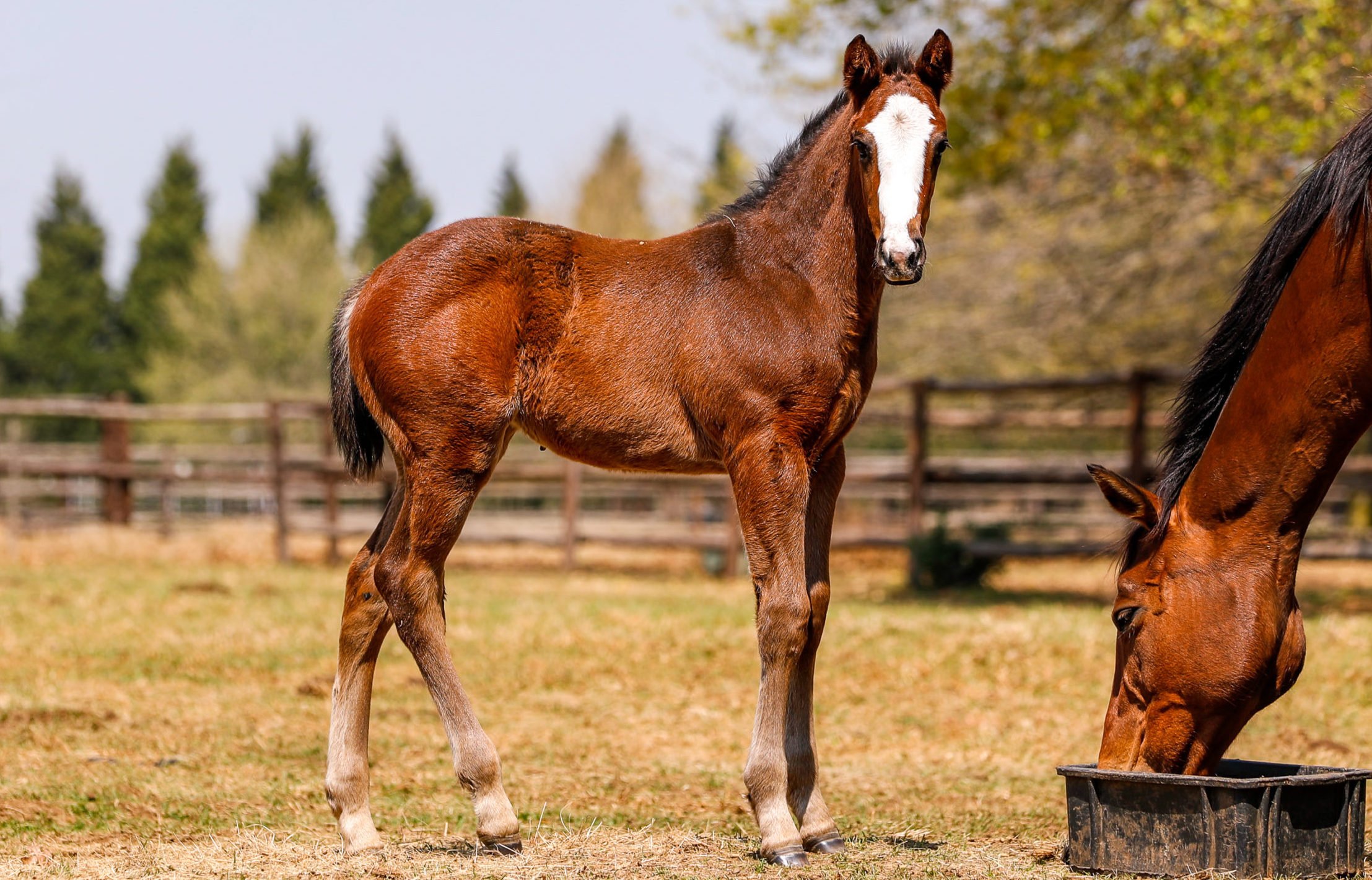A pointer to the potential of a racehorse can be found by analysing bacteria in a month-old foal’s gut, according to a new study.
The Racing Post reports that researchers at the University of Surrey analysed 438 faecal samples from 52 foals, who eventually went into training at 27 different stables in Britain, and tracked veterinary issues and racecourse performance from birth to the age of three.

Foal – for illustration only (Pic- Candiese Lenferna)
They identified a higher abundance of a specific bacteria – anaeroplasmataceae – was associated with a higher official rating, and increased levels of bacillaceae at 28 days old was linked to higher race placings.
The study found that the more diverse the gut bacteria in a month-old foal, the fewer health problems, particularly respiratory diseases, it would likely have in later life.
Professor Chris Proudman, professor of veterinary clinical science at the School of Veterinary Medicine at the University of Surrey, said: “Minimising the risk of disease and injury is important for the welfare of racehorses, and maximising their athletic potential is important for their owners.
“We have found that gut health, in particular the health of gut bacterial communities very early in life, exerts a profound and enduring impact on racehorse health and performance.”
Kirsten Rausing’s Alborada Trust sponsored the study and the Arc-winning owner-breeder, who is chair of the International Thoroughbred Breeders Federation, felt the findings were noteworthy.
Rausing said: “This groundbreaking study has identified the importance of gut health in our very young foals. As breeders, if we can get this right, we will produce foals who will be healthier, and that will grow into more successful racehorses.”
Proudman will be speaking further on the research at a Thoroughbred Breeders Association event at Newbury racecourse on Tuesday 13 August.
www.racingpost.com










